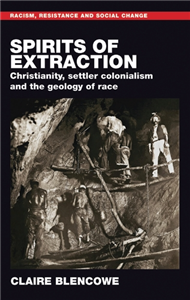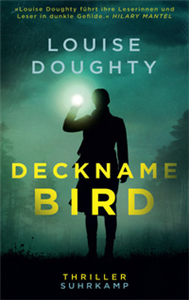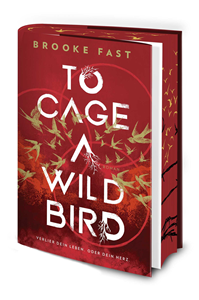Your Search Results
-
RANOK Corporation
Ukrainian Publishing House “RANOK” founded in 1997 is prominent for its endless love for books and reading.
View Rights Portal
-
Promoted Content
-
Promoted ContentSeptember 2010
Monster Blood Tattoo
Die Anklage
by Cornish, D.M. / Illustriert von Cornish, D.M.; Übersetzt von Pfleiderer, Reiner
-
 Trusted Partner
October 2007
Trusted Partner
October 2007Landschaften aquarellieren nach Fotos
Die 60 beliebtesten Landschaftsmotive; In sechs einfachen Schritten von der Fotografie zum eigenen Meisterwerk
by Harrison, Hazel / Illustriert von Cornish, Joe; Übersetzt von Krabbe, Wiebke
-
 Trusted Partner
Humanities & Social SciencesMarch 2025
Trusted Partner
Humanities & Social SciencesMarch 2025Spirits of extraction
Christianity, settler colonialism and the geology of race
by Claire Blencowe
Spirits of extraction revisits the troubling history of socially reformist, ostensibly anti-racist, Christianity and its role in the expansion of the extractive industries, British imperialism, and settler colonialism. The book explores key moments in the history of Methodism and the evangelical movement. Colonial fears, and the attempt to 'civilise savages', were crucial to the movement's foundation in eighteenth-century industrialising Bristol, England. Through the culture of the Cornish mining diaspora of the nineteenth century, Methodism enmeshed with all the complexity of race and labour-structures of the British empire. At the same time, in Anishinaabewaki/Upper Canda/Ontario, Methodist missionaries laid the foundation of abusive education and racialised ideas of redemption that both enable and sacralise the mining industry. Through these histories of our present, the book theorises the relation of religion and education to racism, modernity, biopower, extractivism, and the geology of race.
-
 Trusted Partner
July 2025
Trusted Partner
July 2025Deckname: Bird
Thriller | »Eine fesselnde Lektüre, die mich lange vom Schlafen abgehalten hat!« Val McDermid
by Louise Doughty, Thomas Wörtche, Astrid Arz
Was ist schlimmer? Gejagt zu werden oder niemals gefunden zu werden? Heather Berriman, genannt Bird, ist eine Frau auf der Flucht. Gerade noch war sie in einer Besprechung in ihrem Büro in Birmingham – und in der nächsten Minute muss sie ihren Job, ihr Zuhause, ihr Leben hinter sich lassen. Es ist der Tag gekommen, mit dem sie gerechnet und auf den sie sich vorbereitet hatte. Aber nichts konnte sie auf das vorbereiten, was als Nächstes passieren würde.Während Bird versucht herauszufinden, wer hinter ihr her ist, muss sie sich entscheiden, wem sie noch vertrauen kann.
-
 Trusted Partner
Trusted Partner
-
 Trusted Partner
Humanities & Social SciencesApril 2025
Trusted Partner
Humanities & Social SciencesApril 2025Beyond the antislavery haven
Slavery in early Canadian print culture, 1789–1889
by Ellie Bird
This book challenges the idealised narrative of Canada as an antislavery haven for self-liberated people to explore Canada's complicated relationship with slavery. Examining advertisements, abolitionist texts and narratives about slavery in Canadian newspapers and the texts that were printed alongside them, it shows how Canadian readers and enslavers developed an image of themselves as belonging to an antislavery community even while recognising their own complicity in slavery. The book explores narratives that depict the lives of Black settlers in Canada and how slave narratives circulated in Canada. Canada's relationship with slavery is far more complicated than seeing it as either an antislavery haven or a slaveholding space. Canada was connected to Britain, France, the Caribbean and the United States and this was central to how Canadians and Canadian readers fashioned their self-image in relation to slavery.
-
 Trusted Partner
Trusted Partner
-
 Trusted Partner
Trusted Partner
-
 Trusted Partner
Trusted Partner
-
 Trusted Partner
December 2025
Trusted Partner
December 2025To Cage a Wild Bird
Verlier dein Leben. Oder dein Herz
by Fast, Brooke
Aus dem Englischen von Bettina Ain
-
 Trusted Partner
Trusted Partner
-
 Trusted Partner
Trusted Partner
-
 Trusted Partner
Trusted Partner
-
 Trusted Partner
Trusted Partner
-
 Trusted Partner
Trusted Partner
-
 Trusted Partner
Trusted Partner
-
 Trusted Partner
January 1989
Trusted Partner
January 1989Die Geheimnisse der guten Erde
Hoffnungsvolle Auswege aus der ökologischen Krise
by Tompkins, Peter; Bird, Christopher / Übersetzt von Würmli, Marcus
-
 Trusted Partner
Literature & Literary StudiesNovember 2011
Trusted Partner
Literature & Literary StudiesNovember 2011Three seventeenth-century plays on women and performance
by Paul Edmondson, Hero Chalmers, Julie Sanders, Sophie Tomlinson, Martin White
This is a ground-breaking edition of three seventeenth-century plays that all engage in diverse and exciting ways with questions of gender and performance. The collection, edited by three pioneering scholars of elite female culture and early modern drama, makes the texts of three much-discussed plays - John Fletcher's The Wild-Goose Chase, James Shirley's The Bird in a Cage and Margaret Cavendish's The Convent of Pleasure - available together in a full scholarly edition for the first time. The Wild Goose Chase (1621) and The Bird in a Cage (1633) were both performed in the commercial London theatres in the Jacobean and Caroline periods respectively. The Convent of Pleasure (1668) is a so-called 'closet' drama, designed primarily for reading but drawing on a tradition of aristocratic theatricals. In a wide-ranging co-authored introduction to the volume, the editors explore the concerns of these playtexts in relation to contemporary debates surrounding popular festivity and anti-theatricalism, as well as the agency of elite female culture in the Stuart period and the emergence of the professional female actor in the Restoration. The volume will be an invaluable teaching and research tool for students and scholars of early modern drama, women's writing and performance studies more generally, as well as providing a rich sourcebook for the reader interested in seventeenth-century theatrical culture. ;
-
 Trusted Partner
Trusted Partner



























